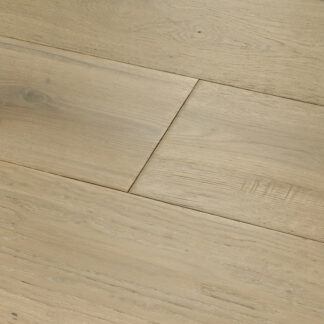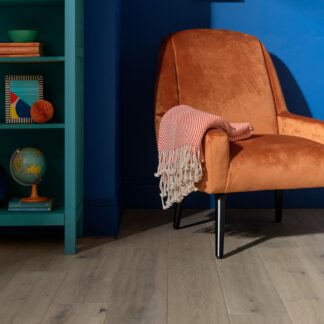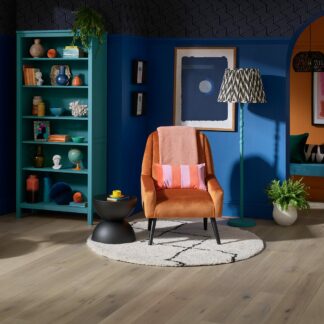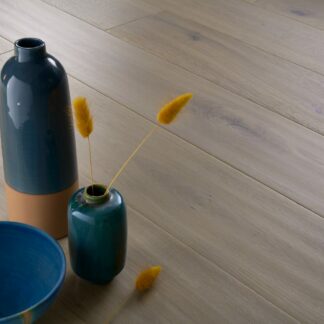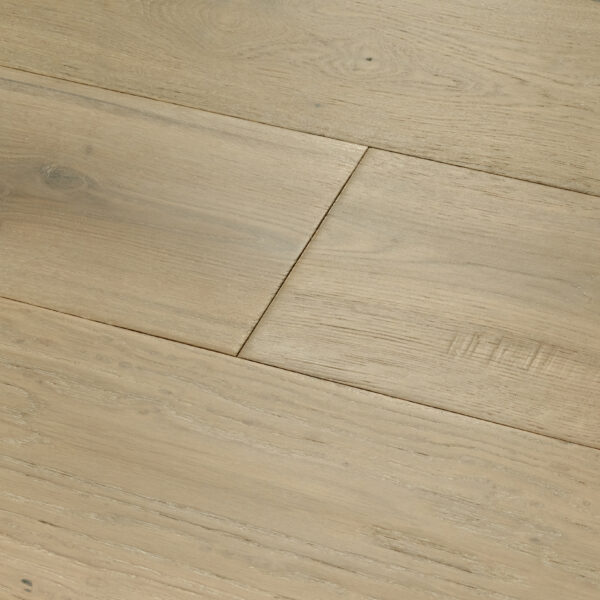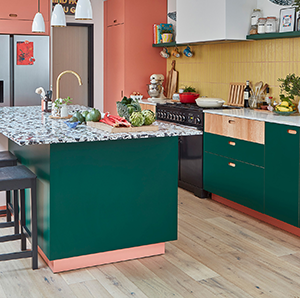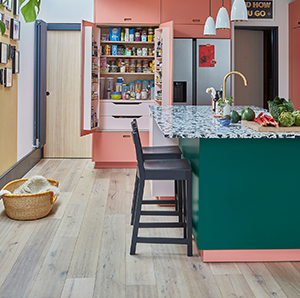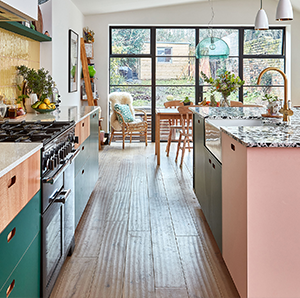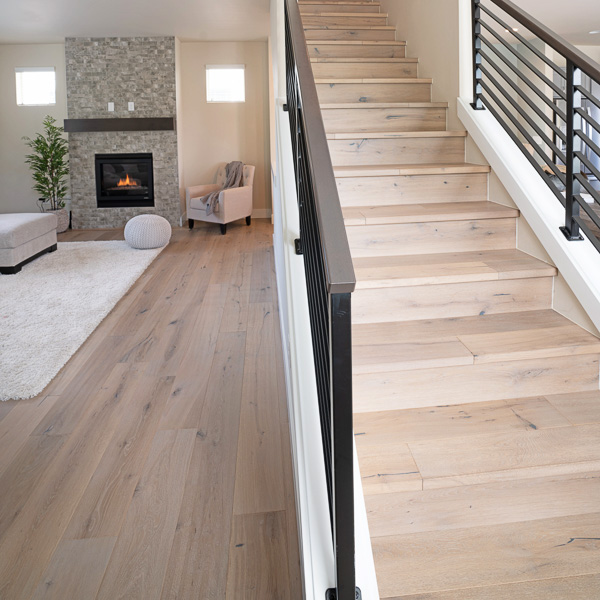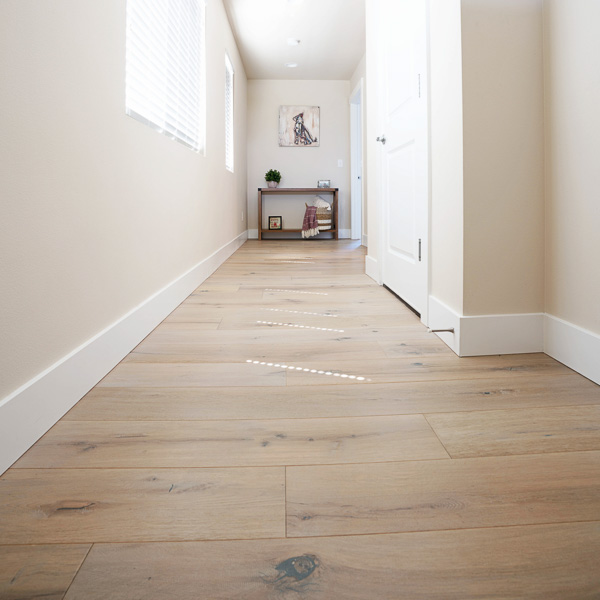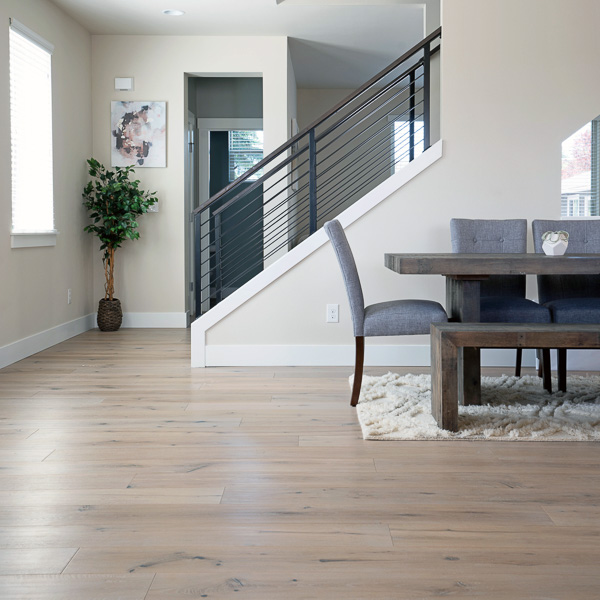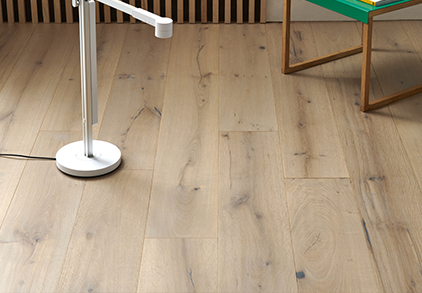
Berkeley Grey Oak | Outlet
Berkeley Grey Oak is perfect for any room that requires a calming, antique look. Relaxing ashen hues blend with a meticulously hand-scraped texture in this extra rustic oak floor. Boards feature large knots, splits, and cracks characteristic of oak that's been underfoot for decades. Every intriguing and subtle tone has been accentuated by the smoking process, then brushed and matt lacquered for a muted matt look. This textured engineered flooring is part of our Legacy range, too.

